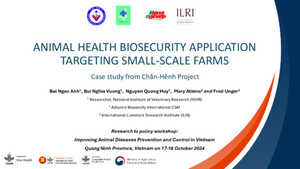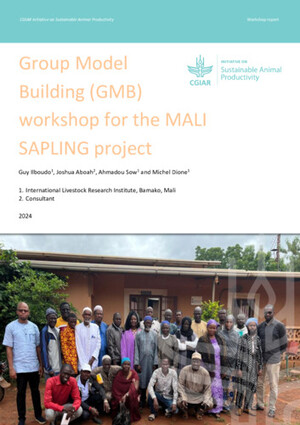
Influential actors and governance challenges in animal health service delivery in Mali
Abstract
The participatory mapping tool, Process Net-Map, was used to identify relevant actors and assess their influence in the delivery of clinical and preventive veterinary services in both pastoral and agro-pastoral livestock production systems of Mopti and Sikasso regions, respectively. The tool also served to elicit governance challenges in veterinary service delivery. The study identified private veterinarians, the Central Veterinary Laboratory and livestock farmers as the most influential stakeholders in the disease control process, with private veterinarians ranking highest in agro-pastoral areas, while in pastoralist systems farmers ranked highest. The major challenges highlighted in the disease control process included vaccine shortage, reluctance of some farmers to vaccinate, illegal sale and sometimes, perceived non-effectiveness of vaccination, limited access of farmers to qualified veterinarians and insecurity in pastoral areas. For clinical services, the most influential actors in pastoral systems were farmers, followed by informal veterinary drug dealers. In agropastoral systems, the most influential actors were private veterinarians, followed by farmers. The main challenges included illegal sale of veterinary drugs, self- medication, illegal practice of the veterinary medicine and poor policy enforcement. Important capacity gaps for disease control and for clinical services call for strengthening human resources to improve delivery
Citation
Dione, M., Yena, A., Wieland, B., Traore, I., Kassambara, H., Sow, A. and Fall, A. 2019. Influential actors and governance challenges in animal health service delivery in Mali. Paper presented at the Seventh All Africa conference on Animal Agriculture, Accra, Ghana, 29 July-2 August 2019.










